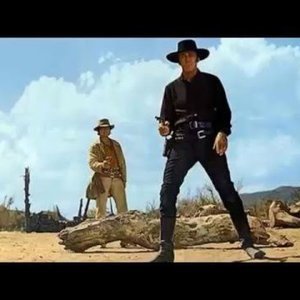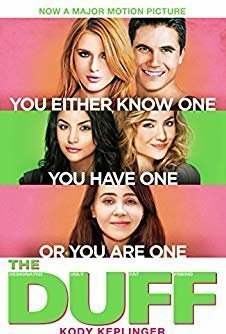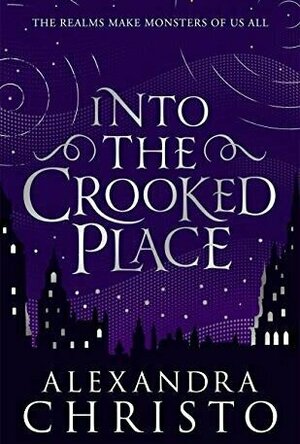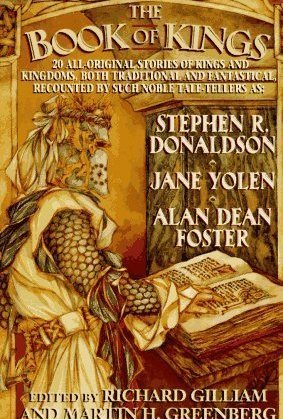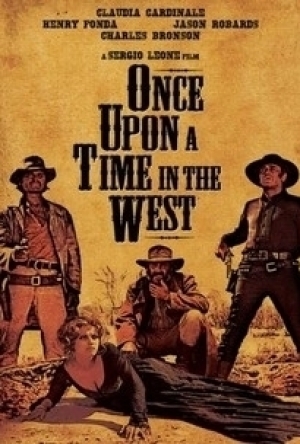
Once Upon a Time in the West (1968)
Movie Watch
There's a single piece of land around Flagstone with water on it, and rail baron Morton (Gabriele...
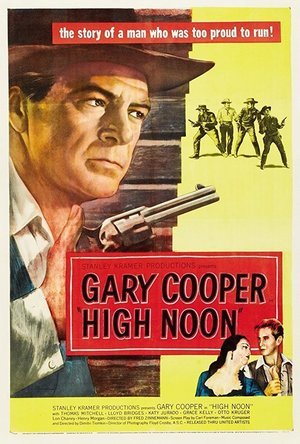
High Noon (1952)
Movie
A town Marshal, despite the disagreements of his newlywed bride and the townspeople around him, must...
Western GreatWesterns
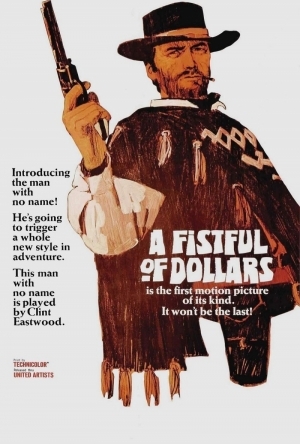
Fistful of Dollars (1964)
Movie Watch
The Man With No Name (Clint Eastwood) enters the Mexican village of San Miguel in the midst of a...
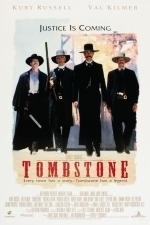
Tombstone (1993)
Movie Watch
Wyatt Earp (Kurt Russell) and his brothers, Morgan (Bill Paxton) and Virgil (Sam Elliott), have left...
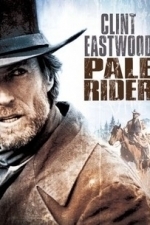
Pale Rider (1985)
Movie Watch
With 1985's Pale Rider, Clint Eastwood returned to the western genre with a vengeance as the movie...
and 10 other items
graveyardgremlin (7194 KP) rated Angel Omnibus in Books
Feb 15, 2019
Leanne Crabtree (480 KP) rated The DUFF: Designated Ugly Fat Friend in Books
Jan 8, 2021
I've been looking at this book for about a year or so and after reading and loving it, I felt more inclined to buy this, so when I saw it was on offer at Amazon for 79p yesterday I bought it straight away.
And I was NOT disappointed!
I think it's fair to say that I am a fan of Kody Keplinger.
I started this a few hours ago and more or less devoured it. I really liked it! I just got really into it, I liked the characters; I fell hard for Wesley! I liked the plot, I liked how supportive her friends were because in a lot of books they can be two-faced b*tches.
I'm looking forward to reading more of the author's books.
And in seeing the film!
P.S. I've think I've got my reading mojo back :D
Ivana A. | Diary of Difference (1171 KP) rated Into The Crooked Place (Into The Crooked Place #1) in Books
Oct 5, 2020
<a href="https://diaryofdifference.com/">Blog</a>; | <a href="https://www.facebook.com/diaryofdifference/">Facebook</a>; | <a href="https://twitter.com/DiaryDifference">Twitter</a>; | <a href="https://www.instagram.com/diaryofdifference/">Instagram</a>; | <a href="https://www.pinterest.co.uk/diaryofdifference/pins/">Pinterest</a>;
#1 <a href="https://www.goodreads.com/review/show/2999418076">Into the Crooked Place</a> - ★★★★
#2 <a href="https://www.goodreads.com/review/show/3504840515">City of Spells</a> - TBR
<img src="https://i0.wp.com/diaryofdifference.com/wp-content/uploads/2020/08/Book-Review-Banner-76.png?resize=768%2C432&ssl=1"/>;
Into the Crooked Place by Alexandra Christo was a book I was very excited to read in the first place.
There is magic and potions, there is romance and adventure. The hype around it was huge, and it is still talked about in the bookish community.
What’s not to like?
Tavia sells magic potions on the market. One day, she is ordered to sell a new magic potion. When her friend Saxoni drinks the new potion, something bad happens. The potion makes people do terrible things - and Tavia and Saxoni need to stop it, before it destroys everyone!
The storytelling in this book was amazing. I was immediately teleported to a world where going to a market to buy a love potion is normal. I could connect with all characters immediately, and wanted to know more about them. The story is told from multiple character’s points of view, which I found appropriate for this story.
Apart from Tavia and Saxony, we also meet Wesley - who is Tavia’s underboss. He is the one that she follows orders from, and he is the one to grant her her freedom, once she earns it by working for him.
<b><i>“There are no good people, he said. Just ones who haven’t made bad choices yet.”</i></b>
We also meet Karam - a feisty warrior woman, who is fighting in pits for money. Karam is a character that I instantly liked, for her bravery and her free spirit. She knows who she is, she knows how she got there, and she knows exactly what she wants.
<b><i>“She had fought her way to her position and hadn’t needed prayer or magic to do it. Just her fists and her smarts and the knowledge that she could.”</i></b>
I liked Karam and she was probably my favorite character.
I think that her journey was the most adventurous compared to all the other characters, and I feel like she’s grown the most.
<b><i>“She felt at home. And she knew why. She knew then that home could be anywhere, because it wasn’t a place, but a feeling. It was made up of people, not bricks, and it was something you could create for yourself, just like family.”</i></b>
The legacy that Karam and Saxony carry is very conveniently revealed. The author only revealed this when it was needed in the book, to fit a certain situation and prompt plot twists. This wasn’t something I enjoyed, and together with how the book ended, it did leave a bitter aftertaste. I think I would have liked the book more if certain reveals were handled better, and the ending was more interesting.
<b><i>“Sometimes, words spoken in anger are not words spoken in truth, dila.”</i></b>
To sum everything up, I still think Into the Crooked Place was amazing and enjoyable.
I enjoyed being in this magical world and I enjoyed the adventures the characters went through. If you’ve been reading my reviews, you will know I love a good versus evil battle, and this book did indeed have that. Would I change the ending? Yes. Would I change the way the reveals were handled? Yes. But was this still an amazing book? Most definitely. If you love young-adult magic and adventure books - you will enjoy this one!
Thank you to the teams at Hot Key Books and ReadersFirst, for sending me a copy of this book. Into the Crooked Place is the first book in the series. The second book is called City of Spells, and is expected to come out in 2021.
Mandy and G.D. Burkhead (26 KP) rated The Book of Kings in Books
May 20, 2018
So since I can’t review it with one blanket sentiment, let’s instead take a quick look at a handful of the 20 all-original stories inside. The following are the tales that most stood out to me during my reading, for better or worse.
“The Kiss” by Alan Dean Foster – A woman walking through a snowy city finds a frog who says he’s a prince, so she kisses him. He turns into a guy and stabs her to death.
Oh boy, we’re not off to a great start here. This story could have been told in a page or so and been an interesting twist on the old tale, but instead the author drew it out over three pages by choosing the absolute most pretentious choice of words for every damn sentence. The guy doesn’t stab the woman, his “knife describes a Gothic arc.” She doesn’t shout or whisper or ask what’s going on, she “expels a querrelous trauma.” It’s not snowing on her face, “trifles of ice as beautiful as they were capricious tickled her exposed cheeks, only to be turned into simulacra of tears as they were instantly metamorphosed by the bundled furnace of her body.”
Yes, really.
The sheer purpleness of this prose might be excused for a deliberately lofty and overwrought tale, but it absolutely does not fit a story about a girl getting shanked by a frog on the street. If the contrast between what’s happening and how it’s presented is supposed to seem absolutely ridiculous, then it’s a success. This reads more like a writing exercise for seeing how unbearably melodramatic you can tell a simple story that the author went ahead and published anyway. I only read it last night as of the time of this particular bit of review, but I still have a headache.
“Divine Right” by Nancy Holder – A king grieving for his recently passed daughter and only heir tries to figure out how to keep his legacy from dying out and eventually decides on a way to choose a successor, sealing his decision by making a pact with God.
I really liked this one, partly for the great characterization of the king via his priorities. He’s not a bastion of righteousness or a tyrannical despot. He might be a pretty decent ruler, or he might not, depending on your priorities and the angle from which you view him. Mostly he’s written to be believable for his position and time period, pride and failings and all.
But what really sealed this story for me was the ironic bent of the plot that I can’t really discuss in any more depth without spoiling it except to say that it definitely fit with the tone and left an appropriate message. So let’s just give it a thumbs up and leave it at that.
“In the Name of the King” by Judith Tarr – If you know the story of Hatshepsut, an Egyptian queen who ruled as Pharaoh, then this is an extra interesting story. It follows both Hatshepsut and her lover in the afterlife and the legacy they’re leaving behind after their deaths, in which they take a surprisingly active interest for dead people.
If you know your history, though, you know where this is going, and it’s very touching as it gets there. It’s also character-centric in a way that makes its dead cast members seem very much alive. This one’s a good contender for my favorite story in the whole anthology.
“Please to See the King” by Debra Doyle and James D. Macdonald – A small glimpse of about one evening each into the lives of two seemingly unrelated, seemingly unimportant men against the backdrop of the battles being fought over a vague and distant rebellion against a vague and distant crown.
To say more would be to spoil the story, which is short, sweet, and interesting. It gives you just enough details, and no more, that you can piece together a much deeper story with room left for speculation about who certain characters really were and what exactly just happened. I’ve spent more time thinking about how the ending may be interpreted than it took me to read it, which is a good sign of nuance done right.
“The Name of a King” by Diana L. Paxson – This’n c’n rightf’ly b’ put in w’ th’ other st’ries I woul’n’t oth’rwise b’ther t’ mention ‘cept fer th’ o’erwrought dialectic style o’ nearly all o’ th’ dialogue, whut c’n git on yer nerves right quick-like whene’er any’ne op’ns their mouths. An’ while I’m ‘ere, th’ settin’ w’s rife wi’ plen’y o’ hints at deeper d’tails whut was ne’er sufficien’ly delved into or whut impact’d th’ actu’l plot much. Felt like part o’ a fant’sy series whut I was ‘spected t’ b’ f’miliar wit’ but wasn’t, an’ whut di’n’t give me ’nuff t’ git f’miliar wit’ just fr’m this st’ry.
Oth’rwise, t’w’sn’t t’ b’d, I s’pose. Bit borin’.
“Coda: Working Stiff” by Mike Resnick and Nicholas A. DiChario – This one was just fun. Again trying not to give away any twists or revelations, this one follows a journalist interviewing a bus driver who used to be a big, famous king back in his heyday but is now content (or so he says) with his obscure life of working a simple job in the day and drinking in his spartan home at night.
Who this ex-king really is probably isn’t who you think it’s gonna be at first, but the story does still technically, and cheekily, fit in with the premise of the book overall. It reminds me very much of something Neil Gaiman might have written, or maybe Terry Pratchett if he’d decided to tackle the kingly premise from a more modern and realistic approach.
There are still 14 stories left in here, many of which are also good reads, or at least decent. In fact, looking back through it again, the only real dud that stands out to me is “The Kiss.” The weakest of what’s left are either adaptations of stories that didn’t really do it for me (“The Tale of Lady Ashburn” by John Gregory Betancourt) or weird original works that weren’t really memorable in what they set out to do (“A Parker House Roll” by Dean Wesley Smith).
Overall, The Book of Kings is a fun and interesting romp through a number of royal worlds, themes, and tones. As such, anyone who gives it a look will probably have the same general sentiment I did at the end, with a few things to like and a few to point to as examples of what doesn’t work for them. Me, I got a bit of the inspiration I was looking for and a few memorable tales out of it, so I’ll forgive the warts.
